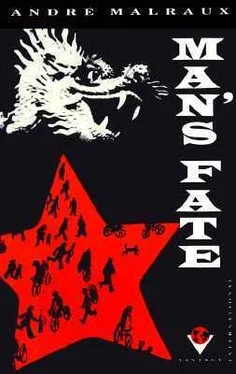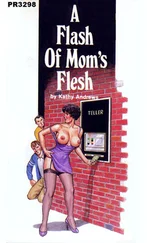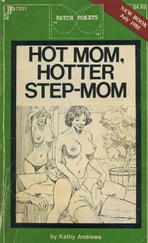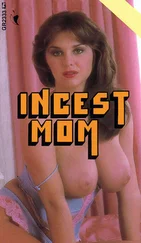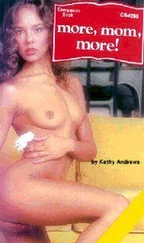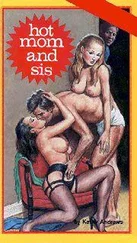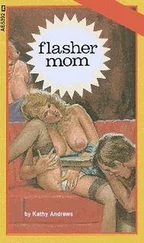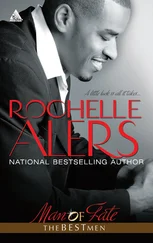enough money to buy toys for my little boy. It’s very painful. All the more as I’m only fond of the kid when I make him-whatd’youcallit-happy. And I don’t know how to make him happy in any other way. It’s difficult.” “But look here-do take my statues. You don’t need to take everything, if you don’t want to.”
“I beg you, I beg you. So I go into the shops, and I say. (He threw back his head, contracting the muscles of his forehead and his left cheek around his monocle, in all seriousness.) ‘I am an inventor. An inventor and manufacturer, naturally. I’ve come to see your models.’ They let me look. I take one of them, never more. Sometimes they watch me, but it’s rare.” “And if you were found out?”
He pulled out his pocket-book and opened it in front of Clappique, showing his policeman’s card. He shut it again, and his hand described a curiously vague gesture:
“I occasionally have the money. I could also lose my job. But anything may happen. ’’
Highly astonished, Clappique suddenly discovered himself to be a man of seriousness and weight. As he had never regarded himself as responsible for his own actions, he was surprised.
“I must warn young Gisors,” he thought to himself.
One o'clock in the afternoon
Ch’en, who was ahead of time, walked along the quay, a brief-case under one arm. He encountered many Europeans whom he lmew by sight: at this hour almost all of them were going to the bars of the Shanghai Club or of one of the neighboring hotels for a drink and a chat. A hand fell gently on his shoulder, from behind. He started, put his hand to his inside pocket where his revolver was hidden.
“It’s been a long time since we’ve met, Ch’en. Do you want to. "
He turned round; it was the pastor Smithson, his first teacher. He immediately recognized the handsome- now badly ravaged-face of the American, which betrayed a strain of Sioux blood.
“. to walk along with me?”
Ch’en preferred to walk in the company of a white man. It was safer, and it was ironic: he had a bomb in his brief-case. The correct coat he was wearing gave him the feeling that his very mind was under constraint; the presence of a companion completed the disguise- and, through an obscure superstition, he did not want to hurt the pastor’s feelings. He had counted the vehicles for a minute, a little while before, to find out (odd or even) whether he would succeed: the answer was favorable. He was exasperated with himself. He might as well chat with Smithson, free himself in this way from his irritation.
This irritation did not escape the pastor, but he misinterpreted it:
“Are you suffering, Ch’en?"
“No.”
He still kept his affection for his former master, but not without rancor.
The old man took Ch’en’s arm in his own.
“I pray for you every day, Ch’en. What have you found in place of the faith you have abandoned?"
He was looking at him with a deep affection, which however was in no way paternal. Ch’en hesitated:
“I am not of those whom happiness has any concern with. ”
“Happiness is not the only thing, Ch’en-there is peace.”
“No. Not for me.”
“For all. ”
The pastor shut his eyes, and Ch’en had the impression of leading a blind man by the arm.
“I’m not looking for peace. I’m looking for. the opposite.”
Smithson looked at ^m:
“Beware of pride.”
“Who tells you that I have not found my faith?” “What political faith can account for the world’s suffering?”
“I am more anxious to diminish it than to account for it. The tone of your voice is full of. of humaneness. I don’t like a humaneness which comes from the contemplation of suffering.”
“Are you sure there is any other, Ch’en?” “Wait-difficult to explain. There is another, at least, which is not composed only of that. ”
“What political faith will destroy death. ”
The pastor’s tone was not one of interrogation, but rather of sadness. Ch’en remembered his conversation with Gisors, whom he had not seen since the night of the murder. Gisors used his intelligence in his own service, not in God’s.
“I’ve told you that I wasn’t looking for peace.” “Peace. ”
The pastor was silent. They continued walking.
“My poor little fellow,” he went on at last, “each of us knows only his own unhappiness.” His arm pressed
Ch’en’s. “Do you think every really religious life is not a daily conversion?. ”
They were both looking at the sidewalk, and seemed to have contact only through their interlocked arms. “. a daily conversion. ” the pastor repeated with a weary emphasis, as though those words were merely the echo of an obsession. Ch’en did not answer. This man was speaking of himself and he was telling the truth. Like Ch’en, this man lived his idea: he was something more than a restless bundle of flesh. Under his left arm, the brief-case and the bomb; under his right arm, that arm tightly pressing his:. a daily conversion. " This confidence spoken in a tone of secrecy made the pastor suddenly appear in a pathetic light. So near to murder, Ch’en was attuned to every kind of suffering.
“Each night, Ch’en, I shall pray God to deliver you from pride. (I pray especially at night: it is favorable to prayer.) If He grant you humility, you will be saved. Now at last I can read in your eyes and understand, as I could not a while ago. ”
It was with his suffering, and not with his words, that Ch’en had entered into communion. Those last words, those words of a fisherman who thinks he feels the pull of a fish, stirred in him an anger which rose painfuUy, without altogether banishing a furtive pity. He was completely baffled by his own feelings.
“Listen,” he said. “Listen to this. In two hours I shaU kill a man.”
He looked straight into the eyes of his companion, this time. Without reason, he raised a trembling hand to his face, crumpled the lapel of his coat:
“Can you still read in my eyes?”
No. He was alone. Still alone. His hand released his coat, attached itself to the pastor’s coat-lapel as though he were going to shake him; the latter placed his hand on Ch’en’s. They remained thus, in the middle of the sidewalk, motionless, as if ready to struggle; a passer-by stopped. He was a white man, and he thought they were quarreling.
“It’s a horrible lie,” said the pastor in a muffled voice.
Ch’en’s arm fell to his side. He could not even laugh. “A lie!" he shouted to the passer-by. The latter shrugged his shoulders and went off. Ch’en made a sudden about- face and left almost at a run.
He finally found his two companions, more than a kilometer away. “All dolled up,” with their creased hats, their business-suits, which had been picked out to avoid attracting attention to the brief-cases, one containing a bomb, and the other some grenades. Suan-a redskin type of Chinaman, with an aquiline nose-was musing, looking into space; Pei. Ch’en had never noticed before how extremely adolescent his face seemed. The round shell-rimmed glasses perhaps accentuated his youth. They started off, reached the Avenue of the Two Republics; with al its shops open, it was retu^rning to everyday life.
Chiang Kai-shek’s car would reach the avenue by a narrow street that came into it at a right angle. It would slow down to make the turn. They would have to see it come, and throw the bomb as it slowed down. The general passed every day between one and one-fifteen on his way to lunch. The one who was watching the little street would have to signal to the other two as soon as he saw the car. An antique-dealer’s shop just across the street was a good vantage-point; if only the man did not belong to the police. Ch’en himself would be the look-out. He stationed Pei in the avenue, close to the spot where the car would end its mrn before picking up speed; Suan, a little farther on. Ch’en would give the signal and throw the first bomb. If the car did not stop, whether it was hit or not, the other two would throw their bombs in their tum. If it stopped, they would run towards it: the street was too narrow for it to mrn. There lay the possibility of failure. If he missed them, the guards on the running-boards would open fire to prevent anyone from approaching.
Читать дальше
